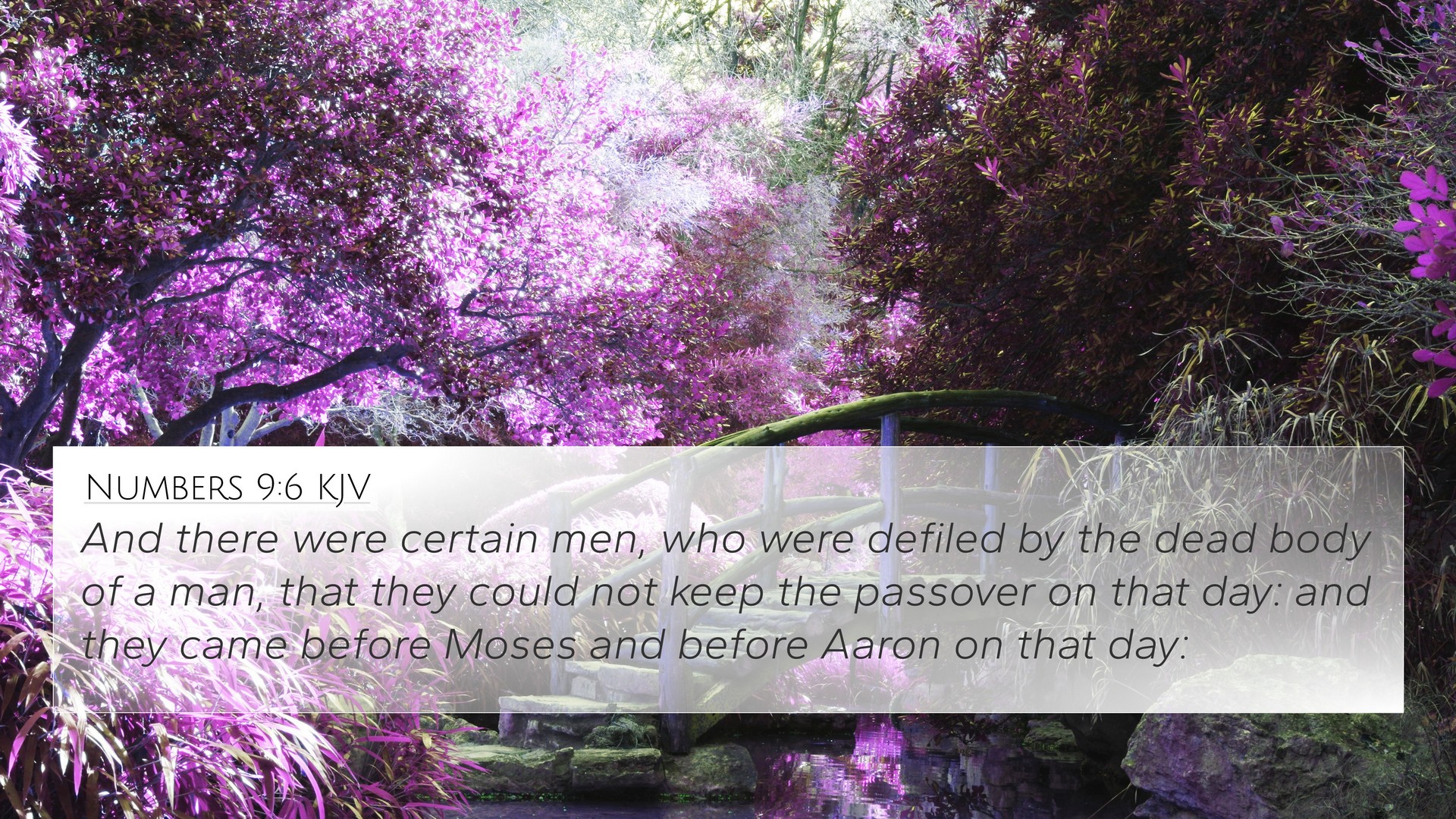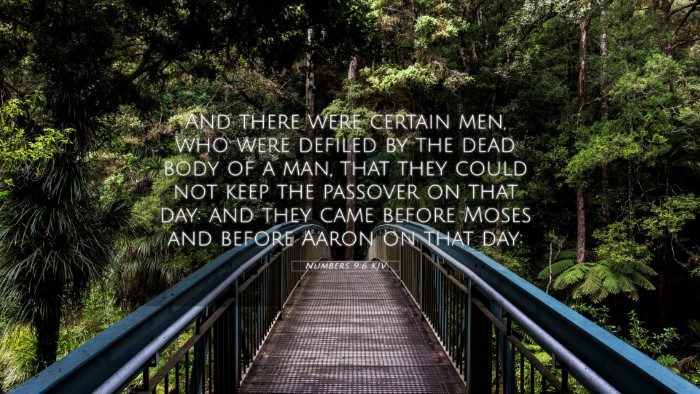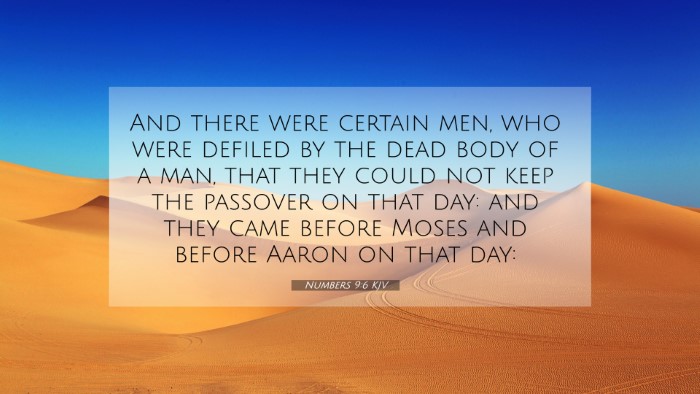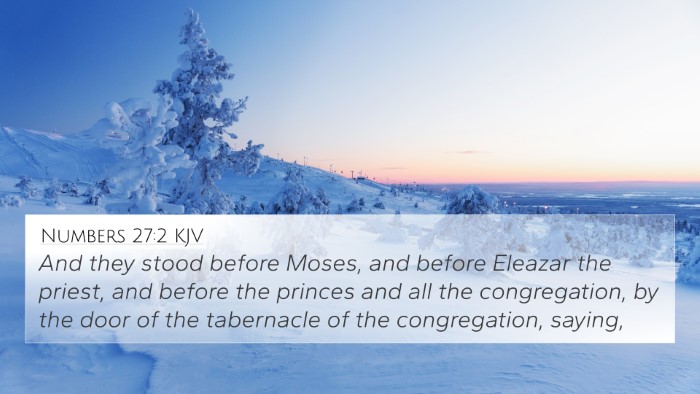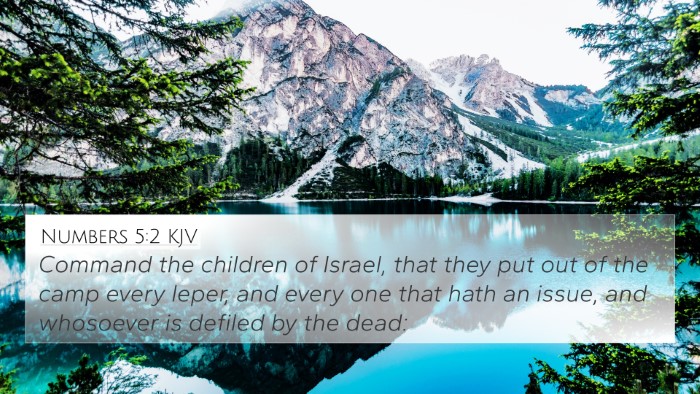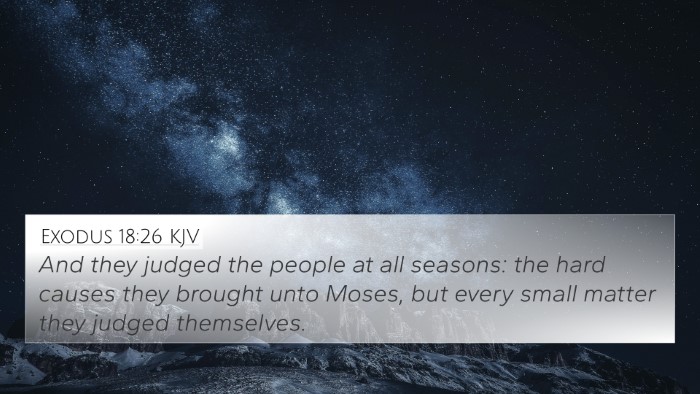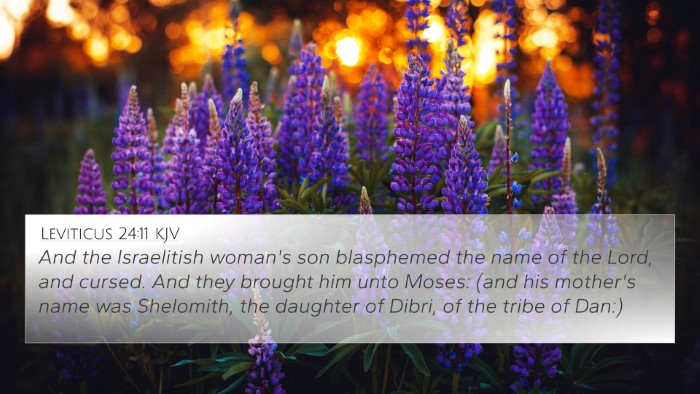Understanding Numbers 9:6
Numbers 9:6 states: “And there were certain men, who were defiled by the dead body of a man, that they could not keep the passover on that day: and they came before Moses and Aaron on that day."
This verse reflects the context of the Israelites’ journey through the wilderness, emphasizing the importance of ritual purity and the observance of religious practices amidst challenging circumstances. The men mentioned were unable to partake in the Passover due to being ceremonially unclean, which highlights the significance of adherence to God’s commandments during pivotal moments in the Israelite's religious life.
Key Insights from Commentaries
-
Matthew Henry:
Henry emphasizes the significance of being ceremonially clean to partake in the Passover, illustrating the seriousness with which the Israelites regarded divine ordinances.
-
Albert Barnes:
Barnes notes the request of the men as a demonstration of their desire to fulfill their religious duties despite their unfortunate circumstance of defilement, showcasing their commitment and sincerity.
-
Adam Clarke:
Clarke provides insights into the nature of defilement and its implications on community worship, reflecting on how it affects one’s participation in communal religious festivities.
Thematic Connections
The events in Numbers 9:6 present a broader theological theme of purity and participation in religious observance. This verse can be linked to several connected themes throughout the Bible. Below are cross-references that articulate related lessons and principles:
- Exodus 12:29-30: The significance of observing the Passover, highlighting God’s protection and deliverance.
- Leviticus 11:24-25: Regulations concerning defilement, underscoring the strict adherence to purity laws.
- 2 Chronicles 30:18-20: A narrative on those who were unclean yet sought to partake in the Passover, showing God's mercy and inclusiveness.
- Matthew 26:26-29: Jesus institutes the Last Supper, providing a New Testament perspective on communal sharing and ritual observance.
- Hebrews 10:22: An emphasis on approaching God with a true heart in full assurance of faith, akin to the Israelites’ intentions despite their defilement.
- Romans 14:15: Paul discusses the seriousness of other believers' scruples in our communal worship and participation, reflecting the sensitivity of worship roots.
- 1 Corinthians 11:27-29: An admonition about approaching the Lord’s Supper unworthily, mirroring the principles seen in the defilement issue in Numbers.
- Philippians 3:13-14: Paul emphasizes striving toward the goal of participation in God’s kingdom—aligning personal integrity with collective observance.
- 1 Peter 1:16: The call to holiness as it relates to our conduct, resonating with the importance of purity established in the Old Testament observances.
Conclusion
In conclusion, Numbers 9:6 is a significant verse that invites reflection on the themes of defilement, purity, and communal worship. It teaches about the lengths to which individuals will go to engage in worship and reminds us of the merciful nature of God, who allows for grace amidst our inability to attain full ritual purity. Utilizing cross-referencing tools, one can explore the intricate connections between biblical texts, enriching the understanding of God’s will and the continuity of themes throughout the Scriptures.
Tools for Further Study
For those interested in deeper exploration, consider utilizing a Bible concordance, a Bible cross-reference guide, or engaging in cross-referencing Bible study methods. These tools can help identify and understand the connections between related scriptures, enhancing your study and comprehension of biblical teachings.
